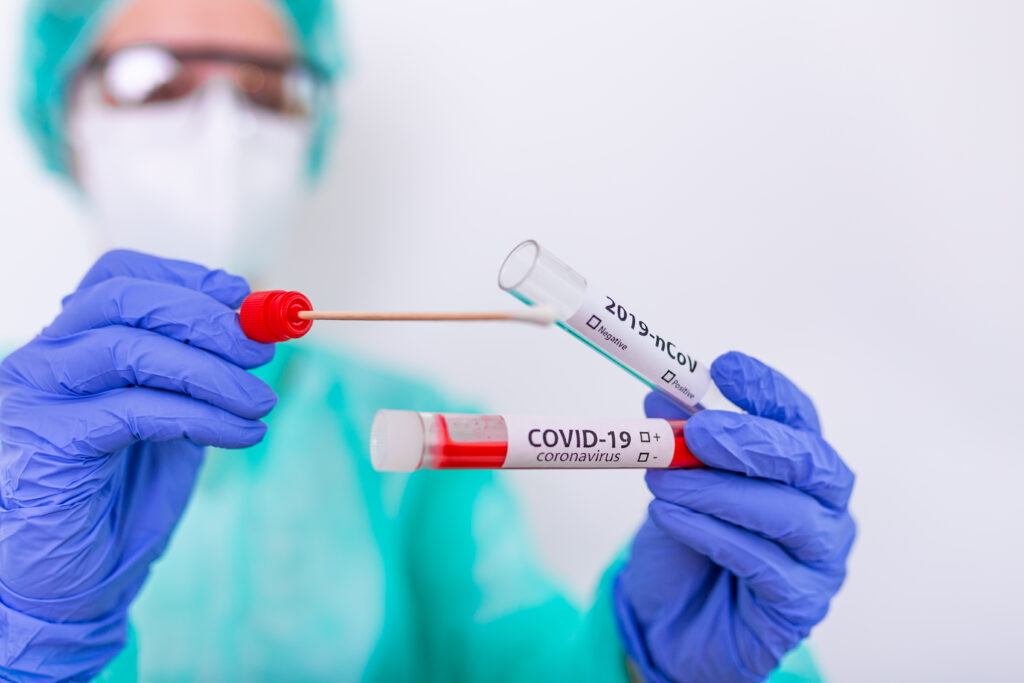What if you could take a test for the Cornavirus in your doctor’s office and get a result within minutes, instead of days? What if you could take the test in the comfort of your own home and get an instant result? This is vision of Genedrive, PLC ($GDR). Biotech Analyst Juliette Duguid breaks down the stock for our readers…
The year 2020 will long be regarded as a year of turmoil with the advent of the coronavirus, with phrases like “social distancing” and “work from home” resounding everywhere we turn. In this uncertain time, return to some semblance of normalcy can at times, seem discouragingly far. However, 2020 can be viewed as a game changing year for the stock market, and while sectors like oil, motor and real estate are currently experiencing depressive lulls, other sectors like online entertainment and education industry are taking advantage of the situation and profiting greatly. Biotech is a sector that stands out in this tumultuous time, and rightfully so–biotech companies are the ones driving research on the virus, as well as production of treatments and tests. Additionally, a multitude of biotech companies are racing to find a vaccine for COVID-19. Once this vaccine is developed and distributed to the public, it is safe to say that this will produce a positive reaction in the stock market, and consequently, the economy. Take, for example, the biotech company Moderna, who, after releasing data from its phase 1 trial for a potential coronavirus vaccine, rocked the S&P 500 up 3%. The logic behind this is as follows–with every announcement of research coming close to finding a vaccine, life returning to normal, in investors eyes, is no longer some unrealistic prospect, but rather a tangible reality. Thus, market activity is likely to be heightened.
Genedrive, a molecular diagnostics company, seems to be at the forefront of the stocks rocked by what is known as the ‘coronavirus effect’. The firm’s shares are reportedly up more than a whopping 3200% since late March for a number of reasons. First, the company had developed the 96 SARS-CoV-2 kit, which is a diagnostic testing kit developed to detect SARS-CoV-2, which causes COVID-19. According to Genedrive CEO David Budd, the company partnered with Cytvia Life Sciences to make use of their stabilisation technology. Due to their high-throughput manufacturing process (which is the automation of experiments to the point where repetition on a large scale becomes feasible) that can make over 10,000 tests per hour, Budd believes that “[they are] amongst a small group of companies that have the capability to produce simple assay solutions at a significant scale”. This is promising news for prospective investors, not to mention the fact that this kit recently became approved for wide-spread sale across the European Union with the help of the CE-IVD marking. Because of the tests’ freeze-dry nature, mass delivery and use will now be all the more easy.

In addition to this development, there has been a second coronavirus test in the works, involving point of care testing, which is testing done closer to the location of the patient, diminishing the need to send samples to a laboratory. Supporters of increased point of care testing vouch for the quicker diagnoses as a way of creating better and more efficient healthcare outcomes. If successful, this would be a huge break for the company The release of both of these tests is projected to bring in around 1.5 million pounds a week, which equates to around $1.69 million. This could produce a gross margin of anywhere between 60 and 80%.
There were concerns about the profitability of the company in late 2019, centering around the fact that the HCV ID testing kit (for the detection of Hepatitis C Virus RNA in blood) was undergoing slow commercialisation and shipping orders to the Department of Defense were significantly delayed. However, according to a World Health Organization Prequalification Public Report, the testing kit has recently received approval while also reaching CE certification. This is a huge break for Genedrive, as this is the first portable point of need device to be put on the ‘prequalification’ list.
In an effort to support the development of COVID-19 tests, Genedrive has plans to open 1.25 million shares to retail investors, and although they are being sold at a discounted rate of 80 pounds (down from 300p), this move should bring in around 8 million pounds in total. Not to mention the fact that these shares were priced around 8p-20p before the start of the pandemic.
It should be noted that Genedrive is a Manchester based stock, and the question has to be asked–is it worth it for an American investor to hold stocks in the United Kingdom? Oftentimes, there can be differences in the way the United Kingdom’s economy moves relative to the United States’, so predictors like the S&P 500 may not always be indicative of what is going on in the UK markets. However, we are in an unprecedented time, and no market is immune to the effects of the coronavirus. Moreover, globalization is becoming more prevalent around the world, so international markets are becoming more intertwined.
Although restrictions in the United States and around the world are easing up, no expert is sure of what the future holds in terms of projections for the coronavirus. There is talk of a second wave of the virus hitting in the fall when outside temperatures drop and people spend more time indoors, as well as an increase in cases when some colleges return to campus. In fact, experts have even voiced concerns over the coronavirus becoming a seasonal ordeal–so, it seems reasonable to assume that testing kits and devices will continue to be a necessity, at least for the foreseeable future (or until a vaccine is successfully developed, which could take a very long time). Genedrive, with a yearly budget of around 2.3 million pounds for research and development, is capitalizing on this need, and working to deliver safe and efficient methods of testing globally.





More Stories
SHOULD NEOGENOMICS LABORATORIES BE ON THE RADAR FOR GROWTH INVESTORS?
HCA AND THE FUTURE OF HEALTHCARE
IS GOOGLE A HEALTHCARE COMPANY?